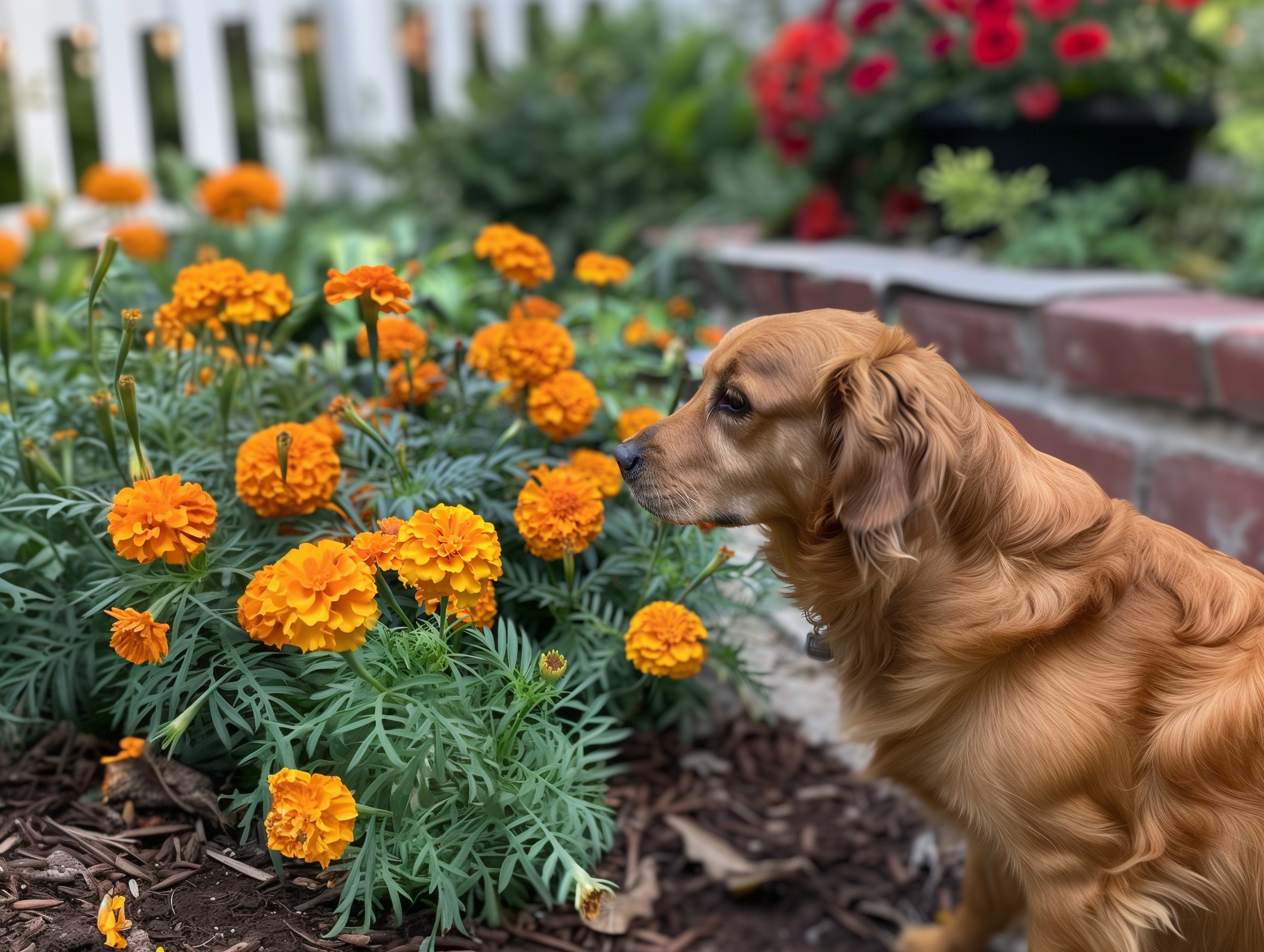
Are Marigolds Toxic to Dogs?
What Is a Marigold?
Marigolds are vibrant and colorful flowers that belong to the Asteraceae family. They are native to North and South America and have been cultivated for centuries due to their beauty and various uses. Marigolds come in different species, including Tagetes erecta (African marigold), Tagetes patula (French marigold), and Calendula officinalis (pot marigold). These flowers are known for their distinctive scent and bright yellow or orange petals.
Marigold Flower vs. Extract
While marigolds can be beautiful additions to your garden, it's important to note that certain parts of the plant can be toxic if ingested by dogs. The flower itself is generally considered non-toxic, but other forms such as extracts or oils may pose risks. Marigold extract is often used in topical ointments or creams for its anti-inflammatory properties. However, these products should not be ingested by dogs without veterinary guidance as they may contain additional ingredients that could be harmful.
Will Dogs Typically Eat Maridgods?
Dogs typically do not eat marigolds on their own as they have a bitter taste which deters them from consuming these flowers. However, there are instances where dogs might accidentally ingest marigolds while exploring gardens or outdoor areas. Ingesting small amounts of fresh marigold plants is unlikely to cause severe toxicity in most cases; however, it's always best to monitor your dog closely if you suspect they have eaten any part of a marigold plant. If you notice any unusual symptoms or behaviors after ingestion, contact your veterinarian immediately for further advice.
Marigolds Might Cause Mild Irritation
Dermal Exposure
Marigolds can cause dermal irritation in dogs if they come into contact with the plant. The sap and oils from marigold plants can cause redness, itching, and rashes on a dog's skin. It is important to keep dogs away from marigolds and to wash their skin thoroughly if they do come into contact with the plant.
Ingestion
Ingesting marigolds can be toxic for dogs. Marigold flowers, leaves, stems, and even the water from vases containing marigolds contain compounds that are harmful to dogs when ingested. These compounds can lead to gastrointestinal upset such as vomiting or diarrhea. In some cases, ingestion of large quantities of marigold parts may even result in more serious symptoms like tremors or seizures.
What to Do If Your Dog Ate a Marigold
Immediate Steps
If you suspect that your dog has ingested marigolds and is showing symptoms such as vomiting, diarrhea, or loss of appetite, it is important to take immediate steps to address the situation. The first thing you should do is remove any remaining marigold flowers or plants from your dog's reach to prevent further ingestion. It may also be helpful to rinse out your dog's mouth with water if possible. However, it is important to note that home remedies should not replace professional veterinary care.
When to Contact Your Vet
While most cases of marigold ingestion by dogs result in mild gastrointestinal upset, there are instances where medical intervention may be necessary. If your dog has consumed a large quantity of marigolds or is experiencing severe symptoms such as persistent vomiting or difficulty breathing, it is advisable to contact your vet immediately for guidance. They will be able to evaluate the situation and provide appropriate advice or treatment options based on the severity of the symptoms and the individual needs of your dog.
Home Care Tips
In addition to seeking veterinary assistance when needed, there are some home care tips you can follow if your dog has ingested marigolds. Firstly, keep an eye on their behavior and monitor them closely for any changes in appetite or bowel movements. Provide plenty of fresh water for hydration and encourage them to drink regularly. Do not attempt any home remedies without consulting a veterinarian first as some ingredients could potentially worsen their condition or interact negatively with other medications they may be taking.
Top 3 Tips for Keeping Dogs Away From Your Flower Garden
Create a Barrier
To protect your beloved furry friend from the potential toxicity of marigolds, you can create a barrier around your garden or flower beds. This can be done by installing a fence or using chicken wire to prevent dogs from accessing the area where marigolds are planted.
Plant Thorny Vines
Another effective way to deter dogs from getting close to marigolds is by planting thorny vines around the flowers. The prickly nature of these vines will discourage dogs from approaching and potentially ingesting any part of the marigold plant that may be harmful to them.
Leave Deterring Scents
One simple yet effective method to keep dogs away from marigolds is by leaving deterring scents near the plants. Dogs have a strong sense of smell, so certain odors can act as natural repellents. Citrus peels, vinegar, or even diluted peppermint oil can be placed strategically around the marigold area to discourage dogs from coming too close.